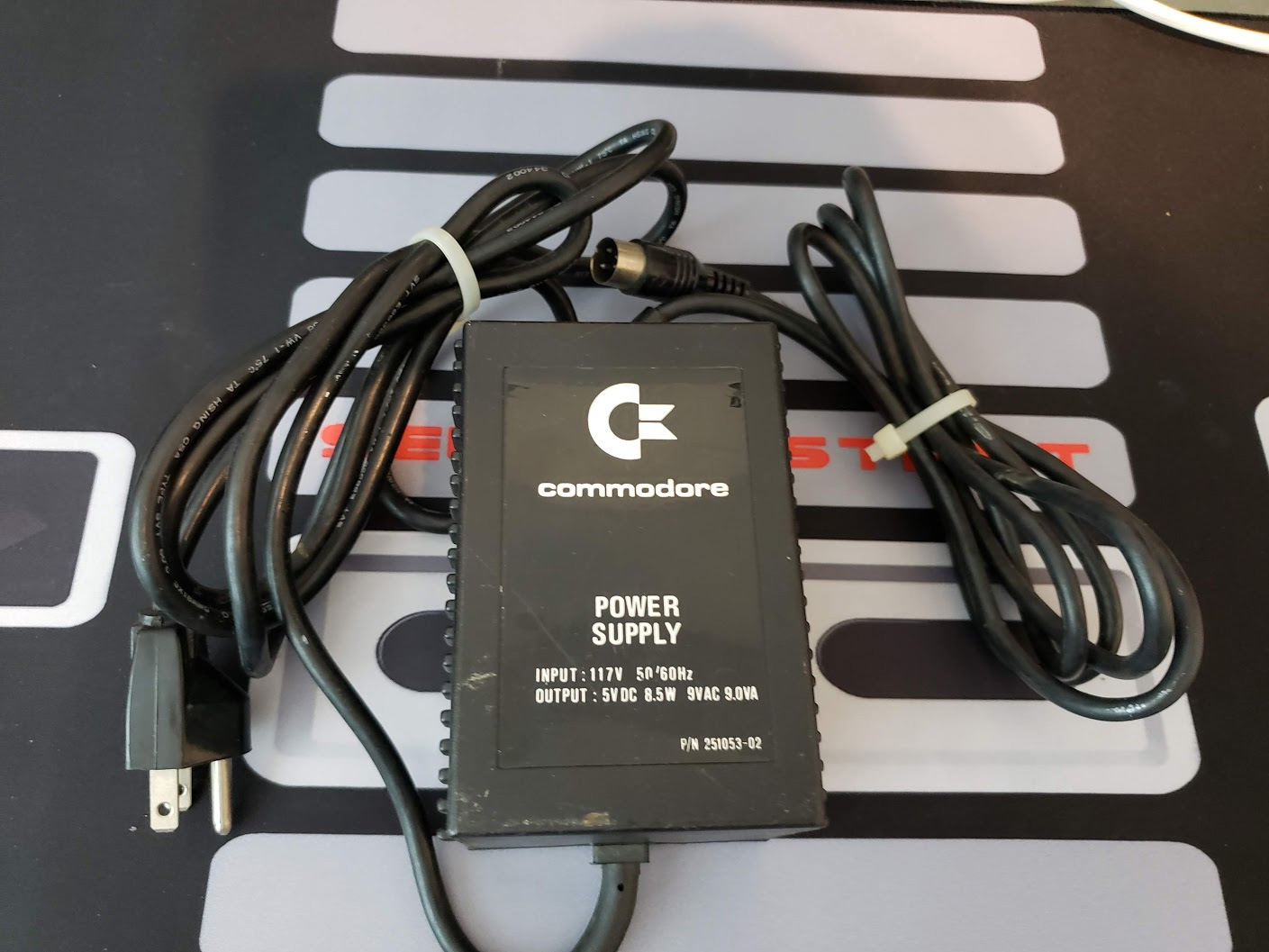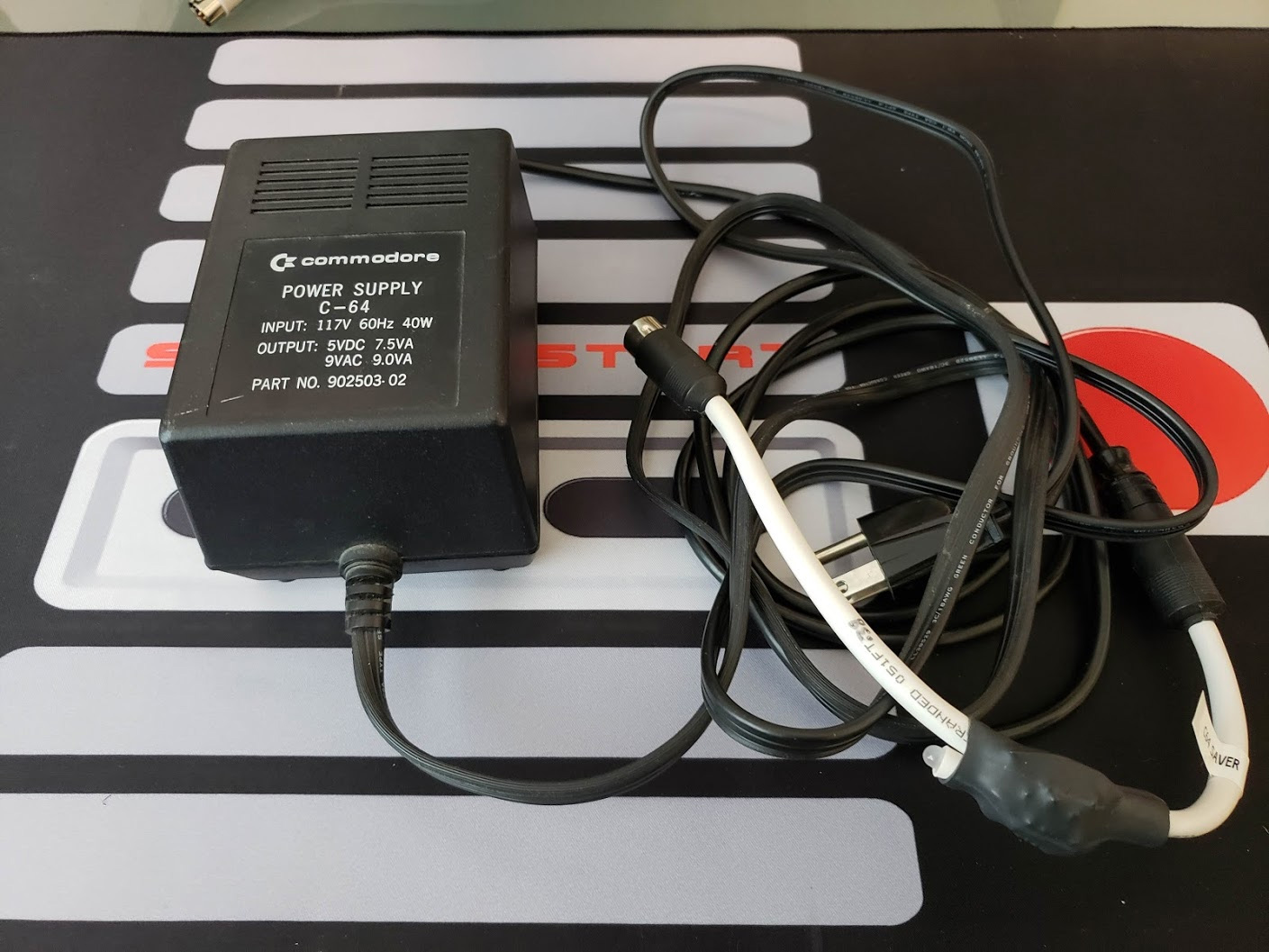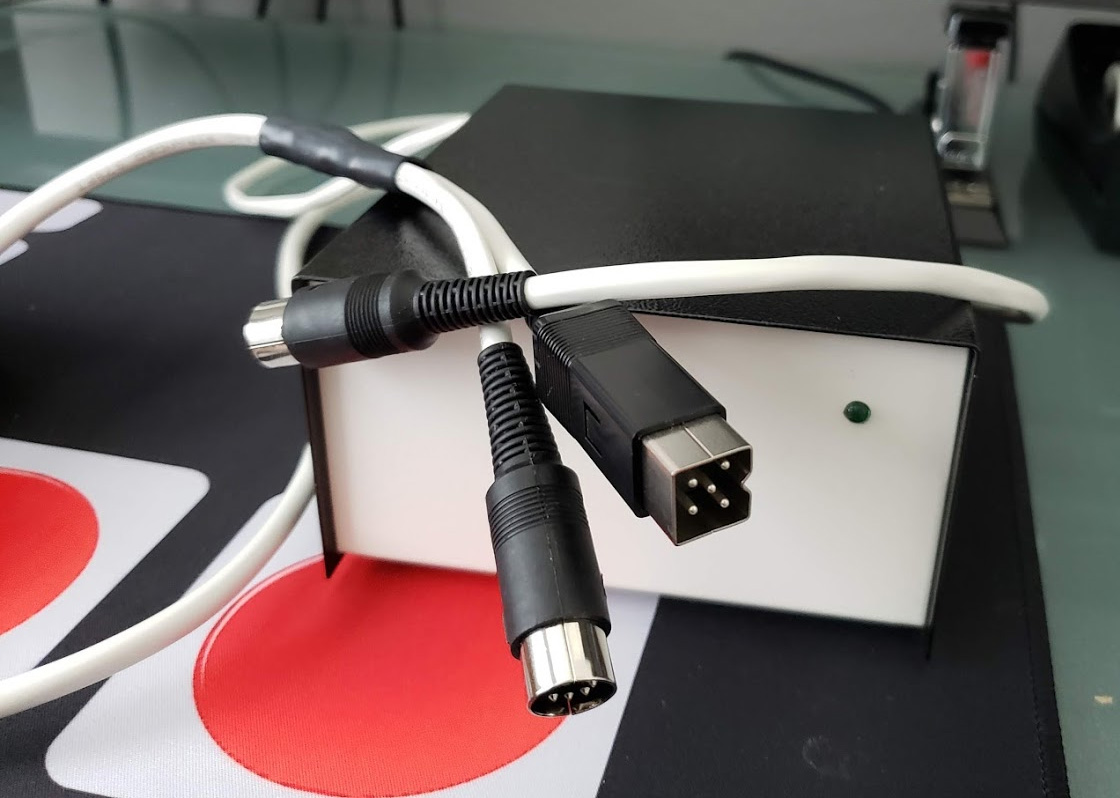The original Commodore 64 power supplies are the ticking timebombs of your Commodore hardware collection. The 5-volt DC output of these power bricks tend to increase over time, eventually damaging various parts of the computer it is powering. Typically, the RAM is the first victim of overvoltage.
I was so enamored with my Commodore 64 as a child that I can recall multiple instances of its failure, as those events represented a significant personal loss in my young mind, and apparently, the perception of trauma enhances memory. For example: misalignment of the 1541 disk drive was routine. I remember my father having to take it in for alignment often, but I was so single-minded that I would still key in long machine language programs from Compute’s Gazette, only to eventually lose them when I had to power the computer down. I eventually learned that sending a format command to the drive without a disk inserted could buy me some more time before it had to be professionally adjusted. (That characteristic knocking sound of a 1541 drive is literally the mechanism banging inside. I suppose that asking it to format a non-existent disk knocked it back into alignment, for a while.)
But the worst problems were PSU related.
I can remember that there was a period of time where our C64 would only run for a short session and give out. I figured out it was the power brick, which would get very hot. It became my wont to fill a Ziploc bag with ice cubes and set it on top of the power supply to get a little bit more time with my C64 before it would shut down of heat exhaustion. (I am pretty sure it was not the PSU shutting down, but something related to its impending failure. Anyway.)
Eventually, the repair shop sold my father a heavy duty, repairable power supply – and from that point on, the C64 always worked, although at some point the SID chip fried and sound could only be heard with the volume set to maximum. And ultimately, the keyboard wore out, and the C64 was retired and replaced with an IBM. (I will save that story for a future blog post.) But the after-market power supply still functioned to the bitter end.
Anyway, from all of this I learned to be very distrustful of stock Commodore power supplies. A common warning on social media given to new collectors is to eschew the stock power bricks that come with an eBay or garage sale haul, especially if they are “untested.” (Well, the word “eschew” is probably not often used, but it should be.) Invariably someone will comment “they always work for me.” Sure, they always work for everyone, until they don’t, and you’ve destroyed a vintage computer. If you are using a stock C64 power brick, your computer is living on borrowed time.
This isn’t an ad, but if you want to know what you should do about this, you have two good options I have personally used myself: 1. A C64 Saver, and 2., a newly manufactured power supply.
The C64 Saver can be thought of as a fuse. It attaches between your C64 and its stock, aging, menacing power brick, and will stop the flow of electrons if they get out of hand. This is the least you should do. It’s inexpensive. A no-brainer.
An even better option is to just replace the power brick with a new power supply. This one is from Ray Carlsen (who also made the C64 Saver), a man who has been repairing electronics since before I was born, and though retired, continues to offer his expertise to Commodore computer enthusiasts. His website is a trove of technical and troubleshooting information, and he will custom-build you a power supply to suit your needs.
This one can power either a Commodore 64 or 128, and additionally power a 1541-II or 1581 disk drive at the same time. It is a far more efficient power supply than the epoxy-filled piece of junk that Commodore shipped with its computers, which legend has it, could set fire to window draperies unlucky enough to brush up against one.
Ray does great work. I ordered my power supply from him and got it about one week later. He offers the C64 saver and custom power supplies from his website here. I don’t know Ray personally, nor has he asked me to plug his website for him. I am sure there are others offering similar products that are just as good; these are the ones I have personal experience with, and I highly recommend them.



